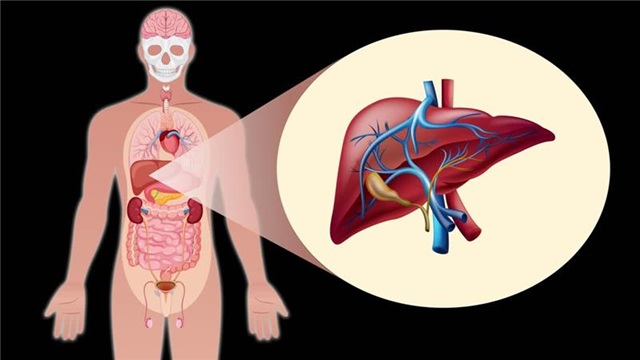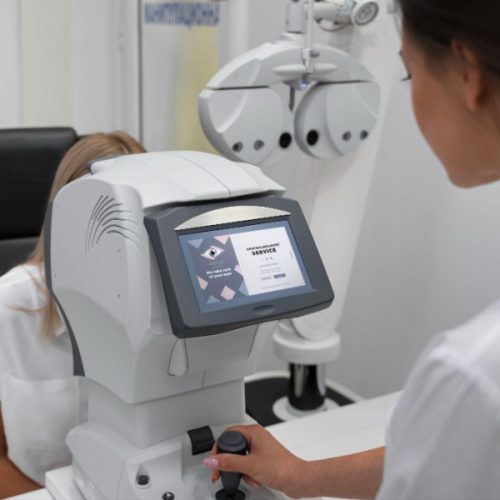Liver cancer remains a serious health challenge, often detected late and complicated by underlying liver disease. Yet, recent years have brought significant progress in how it is managed. From advanced imaging and liver function tests that improve diagnosis, to minimally invasive surgeries, targeted drugs, and immunotherapy, treatment options are becoming more precise and patient-centred. These innovations not only aim to control the disease, but also to improve the quality of life and recovery outcomes. With research driving continuous advances, liver cancer treatment now offers more options and better-coordinated care. This blog highlights the latest advances that are shaping care and what they mean for patients and families in India.
Understanding the Evolving Landscape of Liver Cancer Treatment
Liver cancer is one of the most complex cancers to treat because it often develops in people who already have chronic liver disease. Traditionally, treatment options were limited and outcomes less favourable, especially when the disease was diagnosed at a later stage. Today, however, the landscape of liver cancer treatment is changing rapidly. Sophisticated imaging enables earlier and more accurate detection, while Liver Function Tests (LFTs) assess liver reserve and guide safe treatment planning. Treatment strategies are now more tailored, combining surgery, medication, and interventional procedures to match individual patient needs. The focus has also shifted towards improving survival while maintaining quality of life. As a result, patients now have access to more effective therapies and comprehensive care, especially when coordinated at one of the best hospitals in India with modern facilities.
Advances in Liver Cancer Treatment: Exploring the Latest Breakthroughs
The field of liver cancer treatment has seen significant progress in recent years, offering new hope for patients and families. These breakthroughs are not only improving survival rates but also enhancing quality of life by focusing on precise diagnosis, minimally invasive procedures, and personalised therapies.
Precision in Diagnosis with Advanced Imaging and Liver Function Tests
High-resolution contrast-enhanced MRI and CT have transformed detection and monitoring (with PET used selectively in specific scenarios). These tools allow clinicians to identify tumours at much earlier stages, assess their exact size and location, and determine whether they have spread to nearby tissues. When combined with liver function tests (LFTs), which evaluate how well the liver is working, doctors gain a comprehensive view of both tumour activity and overall organ health. This integration helps in accurately staging the disease, ruling out other conditions, and tailoring treatment to each patient’s needs. The result is earlier detection, safer interventions, and more personalised treatment pathways that improve long-term outcomes.
Minimally Invasive and Robotic Surgical Techniques
In liver cancer care, traditional open surgery is increasingly being replaced by laparoscopic and robotic-assisted approaches. These techniques use smaller incisions and advanced instruments, reducing surgical trauma while maintaining high levels of precision. Patients benefit through:
- Smaller incisions and reduced blood loss during surgery
- Less post-operative pain and discomfort
- Faster recovery and shorter hospital stays, allowing quicker return to daily life
Robotic surgery, in particular, provides surgeons with enhanced dexterity and 3D visualisation, which is especially valuable in complex liver resections where preserving healthy tissue is critical. Candidacy depends on tumour location, overall liver function, and fitness, determined in a multidisciplinary review. In carefully selected early-stage cases, liver transplantation may be considered within defined criteria at specialised centres.
Targeted Therapies and Immunotherapy for Better Outcomes
For many patients with liver cancer, especially those not eligible for surgery, systemic treatments have transformed care. Suitability depends on liver function, bleeding risk, comorbidities, and prior therapy, and is best decided by a multidisciplinary team.
- Targeted therapies: These drugs act on specific genetic or molecular changes that drive tumour growth. By attacking cancer cells more precisely, they reduce damage to healthy tissues and slow disease progression.
- Immunotherapy: Instead of directly killing cancer cells, these treatments activate the body’s own immune system to recognise and fight tumours more effectively.
Both approaches have shown encouraging results in extending survival and improving quality of life. Increasingly, they are being used either as standalone treatments or in combination with surgery and other therapies, widening access to effective, personalised care for liver cancer patients.
Interventional Radiology: Ablation and Embolisation Methods
For patients who are not ideal candidates for surgery, interventional radiology offers effective alternatives to manage liver cancer.
- Ablation techniques: Radiofrequency ablation (RFA) and microwave ablation use heat to destroy cancer cells, particularly effective for small tumours.
- Embolisation methods: Transarterial chemoembolisation (TACE) and radioembolisation block the tumour’s blood supply while delivering chemotherapy or radioactive particles directly to the site.
These minimally invasive procedures are often performed under local anaesthesia, involve shorter recovery times, and can be repeated if needed. They play a vital role in controlling tumour growth, relieving symptoms, and extending survival in patients with advanced or inoperable disease.
Integrative and Personalised Care Approaches
Modern liver cancer treatment is no longer a one-size-fits-all process. Care is now highly individualised, with:
- Multidisciplinary collaboration – surgeons, oncologists, radiologists, and hepatologists working together to design precise treatment plans.
- Supportive therapies – including nutrition counselling, physiotherapy, and psychological support to strengthen overall health.
This approach ensures that patients receive not only advanced medical treatments, but also holistic support to maintain their well-being throughout the journey. Personalised care improves outcomes, reduces complications, and enhances quality of life during treatment.
Research and Future Directions in Liver Cancer Treatment
Ongoing research is steadily reshaping how liver cancer is diagnosed and treated, offering hope for more effective and less invasive options in the future.
Key areas of focus include:
- Genomics and molecular profiling
Identifying genetic mutations that drive tumour growth, paving the way for highly targeted therapies tailored to each patient.
- Next-generation immunotherapies
Clinical trials are testing CAR-T cell therapy and immune checkpoint inhibitors, which aim to strengthen the body’s natural defences against cancer.
- Liquid biopsy techniques
Simple blood tests under evaluation that may, in future, support earlier detection, disease monitoring, and response assessment.
- Artificial intelligence (AI)
Assisting doctors in analysing imaging scans and predicting treatment outcomes with greater precision.
Together, these innovations point towards a future where liver cancer treatment is more precise, personalized, and proactive, offering patients higher survival rates and improved quality of life.
Where to Seek Advanced Care in India
For liver cancer treatment, choosing the right hospital can materially improve safety and outcomes. The reputable hospitals in India combine state-of-the-art technology, experienced surgical and interventional teams, and comprehensive oncology pathways that prioritise safety and long-term outcomes. From robotic surgeries to cutting-edge targeted therapies, the focus is always on delivering personalised treatment tailored to individual needs. If you or a loved one is exploring advanced options for liver cancer care, consider consulting a reputed hospital, where modern treatments meet compassionate support. Timely referral and expert-led planning help turn these advances into safer, more effective care.



